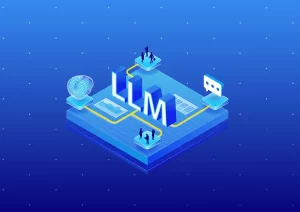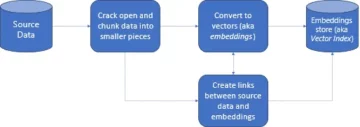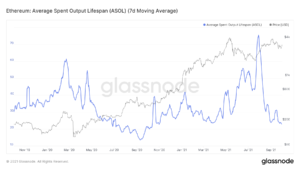Remember when we were in school or college, Facebook and Google first burst onto the scene? Those were incredibly exciting times. Social media was still in its infancy, and Google quickly became the go-to search engine for all our queries. Little did we know that they would become the corporate titans they are today. Fast-forward to today and it’s clear—these tech behemoths undeniably change the course of the World.
With the addition of Apple, Netflix, and Amazon, FAANG was formed, followed by MAANG, and now it is MAANA. These are not just acronyms for companies but indicate their dominance in the tech world. It is evident from their significant market capitalization, widespread popularity, and deep influence. Yet, since the inception of Generative AI in 2020, remarkable advancements have propelled it to new heights. With growing companies such as Stability AI, Mistral AI, and OpenAI, as well as their tools (text-to-video, editing, and more), can we expect more dominance from the growing tech multinationals in GenAI verticle?
Absolutely YES.
Have you heard about MANGO?
No, I’m not talking about the tropical fruit but rather the potential powerhouse in the tech world. As we know, Generative AI is the talk and walk of the town, and a handpicked cohort of businesses is prepared to rewrite AI-facilitated world and manipulation possibilities. Out of the multitude of companies working day in and day out, we have picked – MANGO(Microsoft, Anthropic, NVIDIA, Google, and OpenAI). They are a consortium of leading companies poised to create the newest breakthrough in Generative AI technology. MANGO is at the helm of reimagining what is possible with technical savvy, research skills, and visionary leadership.
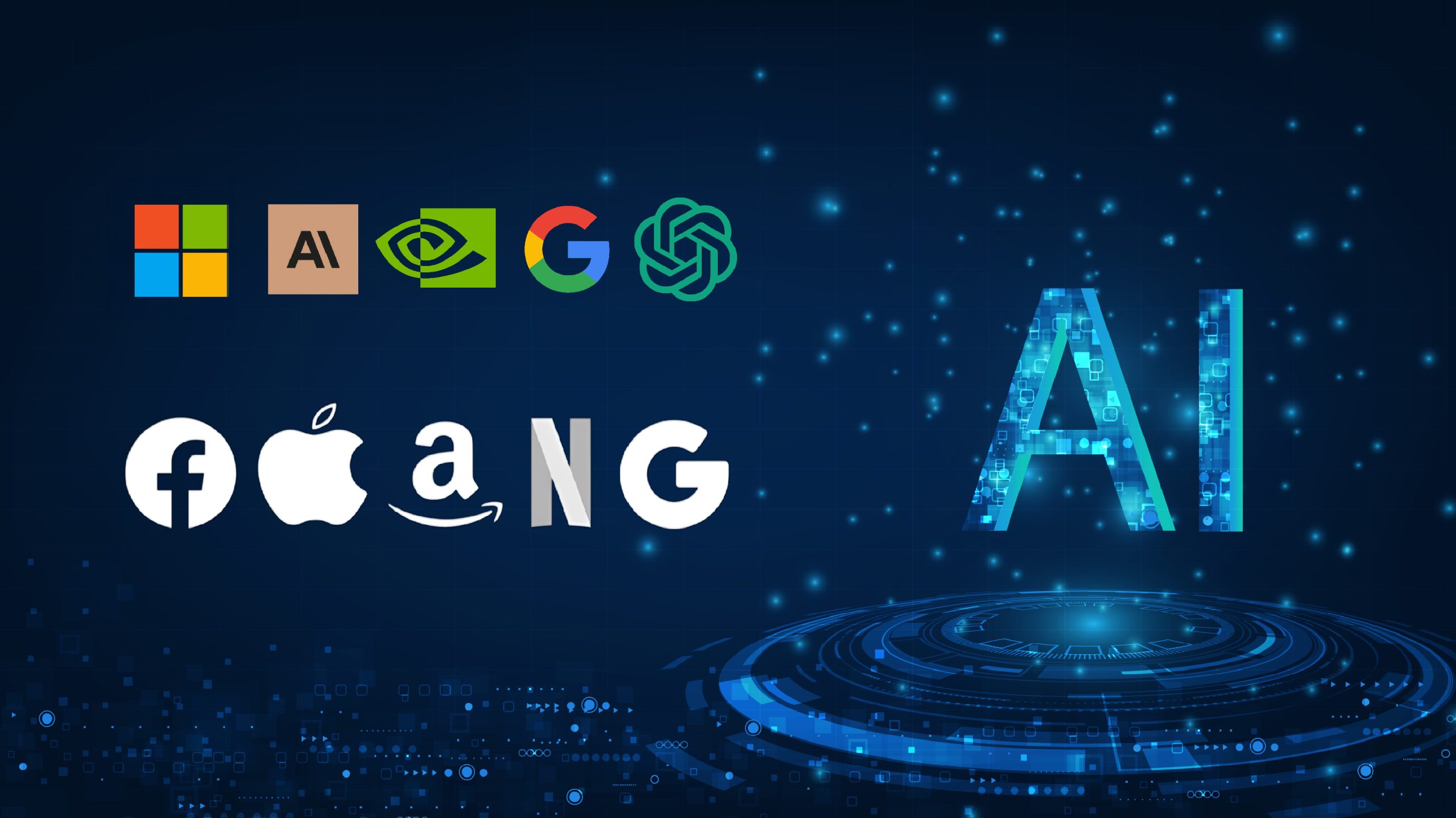
Table of contents
Here’s How We Created the MANGO List

If you deny the future is Gen AI, then you’re overlooking the digital transformation around us. Gen AI isn’t just a trend—it’s a fundamental shift in how we approach problem-solving, creativity, and innovation.
The MANGO list represents some of the most prominent and influential companies driving Generative Artificial Intelligence (Gen AI) innovation. This acronym encompasses Microsoft, Anthropic, NVIDIA, Google, and OpenAI – tech giants and pioneering startups that have significantly contributed to developing and advancing large language models, generative adversarial networks (GANs), and other groundbreaking generative AI technologies.
In curating this list, we aimed to highlight organizations that have demonstrated a strong commitment to pushing the boundaries of what’s possible with generative AI. These companies have invested substantial resources into research and development, fostering teams of brilliant minds dedicated to unlocking the full potential of these powerful AI systems.
- Microsoft
- Leading the integration of generative AI into products like Copilot for Microsoft 365.
- Employs 221,000 people worldwide, giving them a large workforce to drive AI development.
- Microsoft’s market cap climbs to $3 trillion, paving the way for AI innovation.
- Anthropic
- Investment from tech giants like Google, Microsoft, and Amazon propels technological advancements and innovation to new heights.
- Impressing with advanced language models like Claude
- Claude 3 Opus, Claude 3 Sonet, Claude Haiku.
- Claude showcases state-of-the-art natural language understanding and generation.
- NVIDIA
- Providing crucial hardware support for AI systems with their GPUs.
- The AI chip giant, valued at $1 trillion in mid-2023, soared to $2 trillion by February 2024.
- GPUs power over 95% of the world’s AI infrastructure.
- Google
- Driving innovations in machine learning (ML) with projects like Gemini (earlier Bard), Imagen, and LaMDA.
- Google also invested $2 billion in Anthropic.
- Imagen, a text-to-image diffusion model, can generate highly realistic images.
- LaMDA is a conversational AI model with advanced language understanding capabilities.
- OpenAI
- Showcasing generative AI capabilities with models like ChatGPT, Sora, and DALL-E
- OpenAI secured a partnership with Thrive Capital, elevating its valuation to $80 billion or beyond.
- GPT-3 has 175 billion parameters, making it one of the largest language models.
- DALL-E can create unique images from text descriptions with impressive detail and creativity.
Together, these MANGO companies (Microsoft, Anthropic, NVIDIA, Google, and OpenAI) are shaping the future of AI, inspiring exploration of its potential across various domains and applications.
Furthermore, the Signs of Generative AI’s potential appear boundless to alter the course of AI improvements. Between 2023 and 2030, the generative AI market is forecasted to experience significant growth. By the end of 2023, it reached nearly $45 billion, almost doubling its size from 2022. This annual growth of approximately $20 billion is anticipated to persist throughout the decade.
With FAANG creating market turmoil and redefining the rules of tech dominance, MANGO uses Generative AI capabilities to capitalize on potential innovation and tackle complicated demands. Since these companies are shifting the AI landscape, let’s look at how.
The New Trend in Tech Dominance: MANGO(Microsoft, Anthropic, NVIDIA, Google, and OpenAI)
Here is the list of companies dominating the Generative AI ecosystem:
M in MANGO: Microsoft

Being part of MAANG (earlier FAANG), Microsoft is making significant strides in generative AI (GenAI). This evolving technology holds immense potential across various sectors of the economy. Generative AI focuses on creation, enabling the generation of new product ideas, personalized marketing campaigns, and even novel drug treatments. Microsoft has integrated generative AI tools like Copilot into products such as Microsoft 365, Power Platform, and Azure OpenAI Service, revolutionizing industries by automating complex IT tasks and enhancing employee experiences and customer interactions. Microsoft’s Azure OpenAI Service hosts language models like GPT-3 and GPT-4, which automate content generation, enhance quality, diversify content, and enable personalization. These models have already proven their worth in branding, marketing, and predictive analytics. Generative AI is reshaping business operations, fueling creativity, and transforming industries.
McKinsey estimates that generative AI could contribute trillions of dollars annually to the global economy by 2040, with significant impacts in sectors like banking, retail, and pharmaceuticals. Microsoft’s GenAI team aims to design efficient language models that interact and generate content, positioning them for Azure’s cloud service infrastructure integration. Also, Microsoft’s long-term, multi-year commitment of $16 million to Mistral AI demonstrates its confidence in the new company’s prospects and generative AI’s potential to drive the future of computing.
Moreover, Microsoft offers a comprehensive “Generative AI for Beginners” course on GitHub. This 18-lesson course, created by Microsoft Cloud Advocates, covers the fundamentals of building generative AI applications.
A in MANGO: Anthropic

Founded in 2021 by former senior members of OpenAI, including Dario Amodei, Paul Christiano, and others, Anthropic is a company in the generative AI space. Anthropic is dedicated to developing reliable, interpretable, and steerable AI systems and focuses on AI safety and transparency in all research and development areas. The company has raised significant funding from investors like Dustin Moskovitz and Sam Altman.
Anthropic created Claude, a conversational AI assistant trained using constitutional AI principles to make it honest, harmless, and unbiased. Claude is a large language model that can engage in open-ended dialogue, answer questions, help with analysis and writing tasks, and more. Anthropic continues its research into developing advanced AI systems with strong natural language abilities and a robust ethical training framework. Potential new iterations of the Claude AI assistant are in the works with “Claude 3 Opus”, “Claude 3 Sonet”, and “Claude Haiku.” The goal is to further enhance Claude’s linguistic skills and knowledge while steadfastly committing to beneficial AI alignment and safety measures. We believe there’s is a lot for Anthropic in the future!
Also read: Prompting Techniques for Anthropic’s Claude AI
N in MANGO: NVIDIA
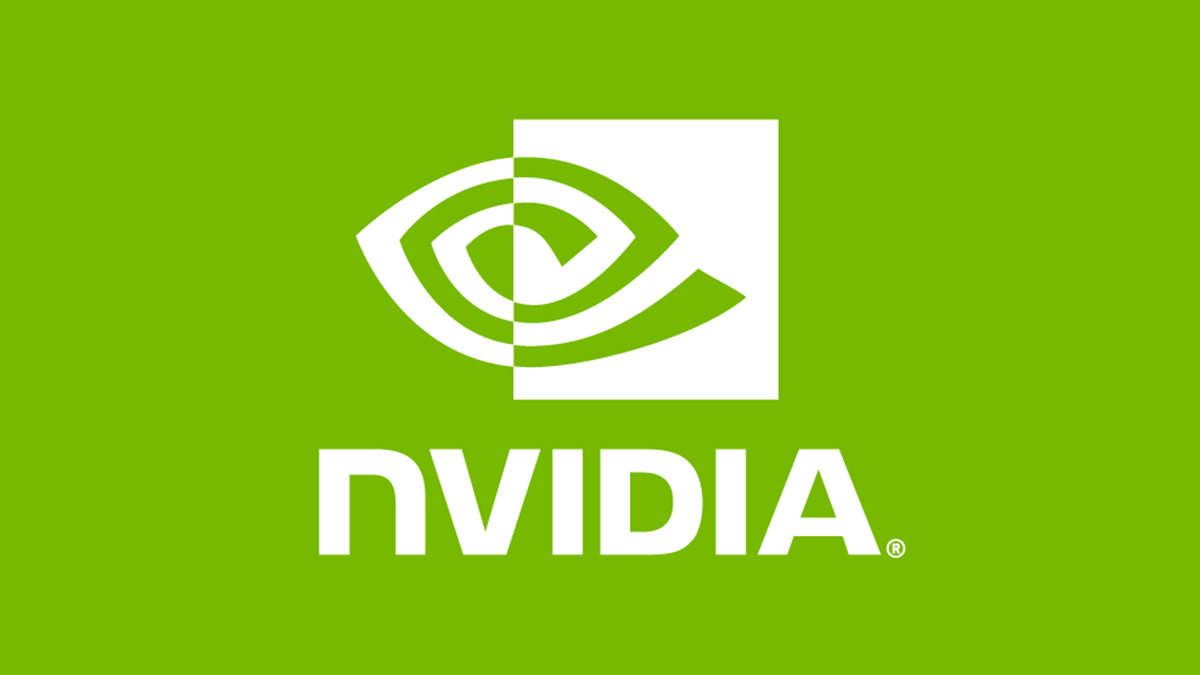
NVIDIA’s continuous development in GPU and AI fields has profoundly impacted the generative AI industry. It has opened up new frontiers for generative AI by researching digital twin systems and incorporating AI into real-time synchronized systems. For generative AI, NVIDIA will break new ground in the synchronized systems area by training their agents to maximize the synchronization between robots and humans, resulting in a new generation of creative AI-driven synchronization.
Moreover, in NVIDIA’s GTC Keynote 2024 – NVIDIA’s CEO foresees AGI (Artificial General Intelligence) arriving by 2029, emphasizing the role of accelerated computing in diverse sectors. The launch of Chat with RTX reflects NVIDIA’s dedication to advancing technology accessibility.
The keynote underscores generative AI’s transformative potential in generating diverse content like text, images, and code, exemplified by models like ChatGPT. This signals a new era of AI-enabled creativity and productivity.
The highlight of the conference was the Blackwell architecture, named after mathematician David Harold Blackwell. Powered by the GB200 chip, it delivers five times the performance of its predecessor and offers 20 petaflops of AI power. Featuring a dedicated decompression engine and secure AI capabilities, the GB200 chip sets a new benchmark for efficiency and scalability in AI computing, fueling innovation across industries. All these advancements underscore the relentless pursuit of excellence in AI technology, promising transformative breakthroughs that will reshape industries and enrich lives globally.
Also read: 6 Takeaways from NVIDIA’s GTC Keynote 2024
G in MANGO: Google
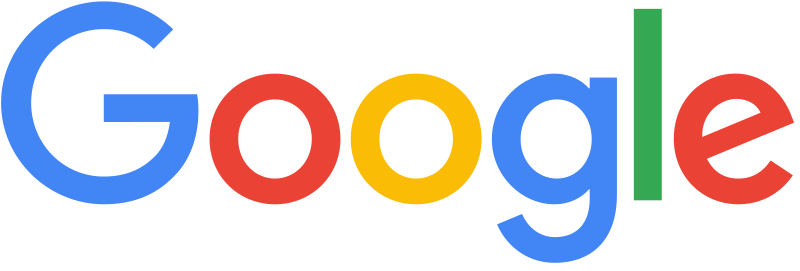
Google, still on the list with substantial AI and cloud computing expertise, actively contributes to the generative AI landscape. It is a major part of FAANG. Its influence and market dominance make it a cornerstone of the FAANG group, representing innovation, technological prowess, and substantial market capitalization. Beyond its diverse offerings, Google’s recent advancements, such as the powerful large language model Google Gemini, showcase its commitment to this field. Google’s pioneering work on the has been foundational for another slew of generative AI models. Google Cloud AI allows developers to incorporate generative AI functionalities through Generative AI support in Vertex AI or Gen App Builder. Overall, Google AI acts responsibly when dealing with generative AI. They are committed to building a “positive, human-centered” future with the help of its vast technologies and investments. In the future, Google will likely produce more performant LLMs and may democratize generative AI further, making it accessible to more residential and commercial users.
Also read: How to Crack Data Science FAANG Jobs in 2024?
O in MANGO: OpenAI

As the pioneer in generative AI, OpenAI has remained the trendsetter in developing the sector through its revolutionary innovations. OpenAI was founded in 2015 with one principle, to democratize the revolutionary power of artificial intelligence for everyone. OpenAI’s goals and development of generative systems are rooted in the ethos and vision of the potential of AI to not only understand the complexities of the world but also to embrace human dreams and morals. Also, the release of ChatGPT provides conversational assistance and content generation and answers questions across various topics using advanced natural language processing algorithms.
- Sora AI: OpenAI’s groundbreaking tool, Sora AI, is poised to revolutionize Hollywood with its text-to-video generation capabilities. Bringing creators’ imaginations to life, Sora AI promises to be the next big thing in filmmaking.
- GPT-4: The latest iteration of OpenAI’s renowned language model, GPT-4, enhances human-machine communication with enhanced natural language understanding and generation. This advancement promises more fluid and intuitive interactions between humans and AI systems.
- DALL-E: Pushing the boundaries of visual creativity, DALL-E introduces hyperrealistic image generation based on textual input. This innovative tool opens up new avenues for artistic expression and visual storytelling, redefining the relationship between text and image.
- OpenAI ChatGPT + Robot = Figure 01: Figure 01 represents the seamless integration of OpenAI ChatGPT with robotic capabilities, enabling full-fledged conversations and dexterous actions. Language intelligence and robotics synergy set a new standard for interactive AI experiences.
OpenAI’s relentless pursuit of excellence in generative AI propels technological innovation and fosters a future where AI seamlessly integrates into our daily lives, enriching human experiences and advancing societal progress.
Also read: Sora: Top 10+ Latest Videos By Sora AI
The Future Aspects of MANGO
However, in their race to define the limits of generation, many are also participating in the formation of a quickly changing environment of tools, standards, and implementations. From open-source partnerships to security protocols and ethical consents, these combined activities demonstrate industry partners’ shared vision for a future when generating technologies, which are the transformational tools they aim to perform for the good of all mankind.
Over the next few decades, Microsoft, Anthropic, NVIDIA, Google, and OpenAI are poised to deepen their claim as the most important forces driving the generative AI revolution. We can call them the New FAANG. Their combination of technical expertise, research experience, and dedication to ethical AI development position them well to confront the obstacles and opportunities of constant change in the field. As a result, the transformative creations of these imaginative organizations, from the content generation tools of the far side to dynamic and interactive digital platforms, could reshape how we operate in the long run.
Also read: Best Roadmap to Learn Generative AI in 2024
Conclusion
With constant innovation and development, the landscape of generative AI is rapidly evolving, with established players like Google, OpenAI, and other dynamic startups. Like AI blacksmiths, these companies are pushing the boundaries of what’s achievable in AI by leveraging cutting-edge technology and groundbreaking research. This competition is not just about who can create the most powerful AI tools but ultimately benefits us all, promising a future filled with transformative breakthroughs. Major companies worldwide, such as FAANG (MAANG) and others, are investing in GenAI, recognizing its potential to revolutionize industries ranging from healthcare and finance to manufacturing and entertainment.
In this space, the notable MANGO alliance—Microsoft, Anthropic, Google, NVIDIA, and OpenAI—signals a collaborative effort to advance generative AI. With each member contributing unique capabilities, MANGO is poised to lead the way, reshaping industries and enriching lives globally.
So, what are your views of this evolving field of AI and its players? Please comment in the section below if you have any questions or suggestions. If you have other MANGO or New FAANG, then let us know.
- SEO Powered Content & PR Distribution. Get Amplified Today.
- PlatoData.Network Vertical Generative Ai. Empower Yourself. Access Here.
- PlatoAiStream. Web3 Intelligence. Knowledge Amplified. Access Here.
- PlatoESG. Carbon, CleanTech, Energy, Environment, Solar, Waste Management. Access Here.
- PlatoHealth. Biotech and Clinical Trials Intelligence. Access Here.
- Source: https://www.analyticsvidhya.com/blog/2024/04/like-faang-will-these-companies-lead-the-generative-ai-space/
- :has
- :is
- :not
- :where
- $3
- $UP
- 000
- 175
- 20
- 2015
- 2020
- 2021
- 2022
- 2023
- 2024
- 2030
- 2040
- 221
- 67
- 800
- 95%
- a
- abilities
- About
- accelerated
- accessibility
- accessible
- achievable
- Acronyms
- across
- actions
- actively
- activities
- acts
- addition
- advance
- advanced
- advancement
- advancements
- advancing
- adversarial
- advocates
- After
- agents
- AGI
- AI
- AI assistant
- AI models
- AI systems
- aim
- aimed
- aims
- algorithms
- alignment
- All
- allows
- almost
- already
- also
- alter
- altman
- Amazon
- analysis
- analytics
- and
- annual
- Annually
- Another
- answer
- answers
- Anthropic
- Anticipated
- any
- app
- appear
- Apple
- applications
- approach
- approximately
- architecture
- ARE
- AREA
- areas
- around
- arriving
- artificial
- artificial general intelligence
- artificial intelligence
- Artificial intelligence (AI)
- artistic
- AS
- aspects
- Assistance
- Assistant
- At
- automate
- automating
- avenues
- Azure
- Banking
- based
- BE
- became
- become
- been
- Behemoths
- believe
- below
- Benchmark
- beneficial
- benefits
- between
- Beyond
- Big
- Billion
- boundaries
- Boundless
- branding
- Break
- breakthrough
- breakthroughs
- brilliant
- Bringing
- builder
- Building
- business
- business operations
- businesses
- but
- by
- call
- Campaigns
- CAN
- cap
- capabilities
- capital
- capitalization
- capitalize
- ceo
- change
- changing
- ChatGPT
- chip
- claim
- claude
- Cloud
- cloud computing
- code
- Cohort
- collaborative
- College
- combination
- combined
- comment
- commercial
- commitment
- committed
- committing
- Communication
- Companies
- company
- Company’s
- competition
- complex
- complexities
- complicated
- comprehensive
- computing
- Conference
- confidence
- constant
- content
- continues
- continuous
- contribute
- contributed
- contributes
- contributing
- conversational
- conversational AI
- conversations
- copilot
- cornerstone
- Corporate
- could
- course
- covers
- crack
- create
- created
- Creating
- creation
- creations
- Creative
- creativity
- crucial
- curating
- customer
- cutting-edge
- cutting-edge technology
- daily
- data
- data science
- David
- day
- dealing
- decade
- decades
- dedicated
- dedication
- deep
- Deepen
- define
- delivers
- demands
- democratize
- demonstrate
- demonstrated
- demonstrates
- Design
- detail
- developers
- developing
- Development
- dialogue
- DID
- Diffusion
- digital
- digital platforms
- Digital Transformation
- digital twin
- diverse
- diversify
- dollars
- domains
- Dominance
- dominating
- doubling
- dreams
- drive
- driving
- drug
- dynamic
- each
- Earlier
- economy
- ecosystem
- efficiency
- efficient
- effort
- elevating
- embrace
- emphasizing
- Employee
- enable
- enabling
- encompasses
- end
- engage
- Engine
- enhance
- enhanced
- Enhances
- enhancing
- enrich
- enriching
- Entertainment
- Environment
- Era
- established
- estimates
- Ether (ETH)
- ethical
- Ethos
- Even
- everyone
- evident
- evolving
- Excellence
- exciting
- exemplified
- expect
- experience
- Experiences
- expertise
- exploration
- expression
- far
- Featuring
- February
- few
- field
- Fields
- Figure
- filled
- filmmaking
- finance
- First
- five
- fluid
- focuses
- followed
- For
- Forces
- Forecast
- formation
- formed
- Former
- fostering
- fosters
- foundational
- Founded
- Framework
- from
- Frontiers
- fueling
- full
- full-fledged
- functionalities
- fundamental
- Fundamentals
- funding
- further
- future
- Future of AI
- future of computing
- GANs
- Gemini
- Gen
- genai
- General
- general intelligence
- generate
- generating
- generation
- generative
- Generative AI
- giant
- giants
- GitHub
- Giving
- Global
- Global economy
- Globally
- goal
- Goals
- good
- google ai
- Google’s
- GPU
- GPUs
- Ground
- groundbreaking
- Group
- Growing
- Growth
- Hardware
- harold
- Have
- healthcare
- heard
- heights
- helm
- help
- High
- Highlight
- highly
- holds
- Hollywood
- honest
- hosts
- How
- HTTPS
- human
- Humans
- ideas
- if
- image
- image generation
- images
- imaginations
- immense
- impacted
- Impacts
- implementations
- important
- impressive
- improvements
- in
- inception
- Including
- incorporate
- incorporating
- incredibly
- indicate
- industries
- industry
- influence
- Influential
- Infrastructure
- Innovation
- innovations
- innovative
- input
- inspiring
- integrated
- Integrates
- integration
- Intelligence
- interact
- interactions
- interactive
- into
- Introduces
- intuitive
- invested
- investing
- Investments
- Investors
- IT
- iteration
- iterations
- ITS
- Jobs
- jpg
- just
- Keynote
- Know
- knowledge
- landscape
- language
- large
- largest
- latest
- launch
- lead
- Leadership
- leading
- LEARN
- learning
- let
- leveraging
- Life
- like
- likely
- limits
- List
- little
- Lives
- Long
- long-term
- Look
- Lot
- machine
- machine learning
- major
- make
- Making
- Manipulation
- mankind
- manufacturing
- many
- Market
- Market Cap
- Market Capitalization
- Market Dominance
- Marketing
- Marketing Campaigns
- max-width
- Maximize
- May..
- McKinsey
- measures
- Media
- member
- Members
- Microsoft
- Microsoft 365
- million
- minds
- ML
- model
- models
- more
- most
- multi-year
- multitude
- Named
- Natural
- Natural Language
- Natural Language Processing
- Natural Language Understanding
- nearly
- Netflix
- networks
- New
- new product
- Newest
- next
- notable
- novel
- now
- Nvidia
- obstacles
- of
- Offerings
- Offers
- on
- ONE
- only
- onto
- open source
- OpenAI
- opened
- opens
- operate
- Operations
- opportunities
- or
- organizations
- Other
- Others
- our
- out
- over
- overall
- parameters
- part
- participating
- Partnership
- partnerships
- Paul
- Paving
- People
- perform
- performance
- personalization
- Personalized
- pharmaceuticals
- picked
- pioneer
- Pioneering
- platform
- Platforms
- plato
- Plato Data Intelligence
- PlatoData
- players
- please
- poised
- popularity
- position
- positioning
- possibilities
- possible
- potential
- power
- powered
- powerful
- powerhouse
- predecessor
- predictive
- Predictive Analytics
- prepared
- principle
- principles
- problem-solving
- processing
- produce
- Product
- productivity
- Products
- profoundly
- Progress
- projects
- prominent
- promises
- promising
- propelled
- propels
- prospects
- protocols
- proven
- provides
- prowess
- pursuit
- Pushing
- quality
- queries
- Questions
- quickly
- Race
- raised
- ranging
- rapidly
- rather
- reached
- Read
- real-time
- realistic
- recent
- recognizing
- Redefining
- reflects
- reimagining
- relationship
- release
- relentless
- reliable
- remained
- remarkable
- Renowned
- representing
- represents
- research
- research and development
- reshape
- reshaping
- residential
- Resources
- responsibly
- result
- resulting
- retail
- Revolution
- revolutionary
- revolutionize
- Revolutionizing
- roadmap
- robot
- Robotic
- robotics
- robots
- robust
- Role
- rooted
- rules
- Run
- Safety
- Sam
- savvy
- Scalability
- scene
- School
- Science
- seamless
- seamlessly
- Search
- search engine
- Section
- sector
- Sectors
- secure
- Secured
- security
- senior
- service
- set
- Sets
- shaping
- shared
- shift
- SHIFTING
- showcase
- showcases
- side
- signals
- significant
- significantly
- Signs
- since
- Size
- skills
- soared
- Social
- social media
- societal
- some
- Space
- Stability
- standard
- standards
- Startups
- state-of-the-art
- Still
- storytelling
- strides
- strong
- substantial
- such
- support
- synchronization
- synergy
- Systems
- tackle
- Takeaways
- Talk
- talking
- tasks
- team
- teams
- tech
- tech giants
- Technical
- techniques
- technological
- Technologies
- Technology
- text
- textual
- that
- The
- The Future
- The Landscape
- the world
- their
- Them
- then
- These
- they
- thing
- this
- those
- Thrive
- Through
- throughout
- times
- titans
- to
- today
- tool
- tools
- top
- Topics
- town
- trained
- Training
- Transformation
- transformational
- transformative
- transforming
- Transparency
- treatments
- Trend
- trendsetter
- Trillion
- trillions
- twin
- Ultimately
- unbiased
- undeniably
- underscore
- underscores
- understand
- understanding
- unique
- unlocking
- until
- us
- users
- uses
- using
- Valuation
- valued
- various
- Vast
- Videos
- views
- vision
- visionary
- visual
- walk
- was
- Way..
- we
- WELL
- were
- What
- What is
- when
- which
- while
- WHO
- widespread
- will
- with
- Work
- Workforce
- working
- works
- world
- world’s
- worldwide
- worth
- would
- writing
- yet
- you
- Your
- zephyrnet


